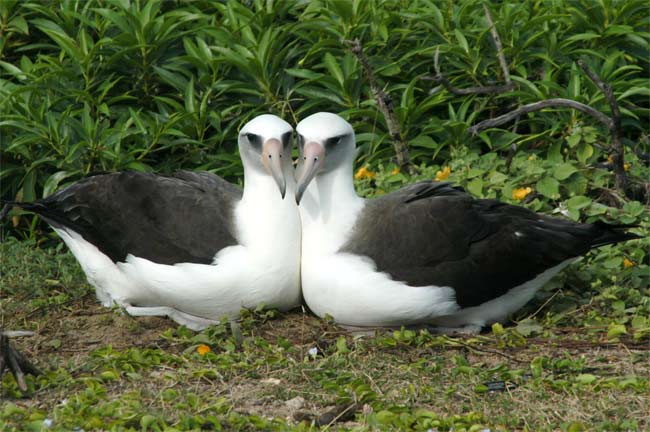Same-Sex Behavior Found in Nearly All Animals

Examples of same-sex behavior can be found in almost all species in the animal kingdom — from worms to frogs to birds — making the practice nearly universal among animals, according to a new review of research on the topic.
"It's clear that same-sex sexual behavior extends far beyond the well-known examples that dominate both the scientific and popular literature: for example, bonobos, dolphins, penguins and fruit flies," said Nathan Bailey, a postdoctoral researcher at the University of California, Riverside.
Same-sex behaviors in different species are not all equivalent, the review finds. For instance, male fruit flies sometimes court other male flies, but this behavior is due to a missing gene that gives the flies the ability to distinguish between sexes, said Bailey, a co-author of the review. "That is very different from male bottlenose dolphins, who engage in same-sex interactions to facilitate group bonding, or female Laysan Albatross that can remain pair-bonded for life," he added.
The review also found a gap in the literature: While many studies have tried to understand why same-sex coupling exists and why it might make sense in terms of evolution, few have looked at what the evolutionary consequences of this behavior might be.
"Like any other behavior that doesn't lead directly to reproduction — such as aggression or altruism — same-sex behavior can have evolutionary consequences that are just now beginning to be considered," Bailey said. "For example, male-male copulations in locusts can be costly for the mounted male" and this cost may put evolutionary pressure on the locusts, he said. As a result, a larger number of males may secrete a particular chemical that discourages the mounting behavior, he added.
In their future research, Bailey and Marlene Zuk, a biology professor at UCR, plan to try and address questions about the evolutionary outcomes of same-sex couplings, focusing on the Laysan Albatrosses.
The review article was published in the June 16 issue of the journal Trends in Ecology and Evolution, and the study was funded by the UCR Academia Senate.
Get the world’s most fascinating discoveries delivered straight to your inbox.
 Live Science Plus
Live Science Plus






